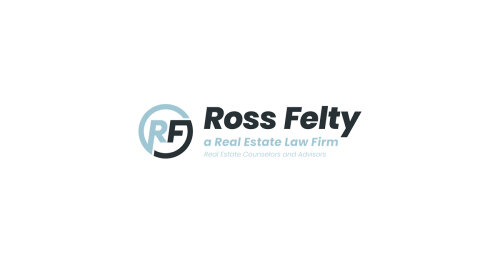Best Conveyancing Lawyers in Jupiter
Share your needs with us, get contacted by law firms.
Free. Takes 2 min.
Free Guide to Hiring a Real Estate Lawyer
List of the best lawyers in Jupiter, United States
1. About Conveyancing Law in Jupiter, United States
Conveyancing is the legal process of transferring property ownership from seller to buyer. In Jupiter, Florida, this process blends federal protections with state statutes and local recording requirements in Palm Beach County. The goal is to ensure a clear title and smooth transfer of ownership at closing. Practically, you will see title search, document preparation, disclosures, and the recording of the deed at the county recorder’s office.
In Florida, closings can be handled by a Florida-licensed attorney or a qualified title company, depending on the transaction’s complexity. Some lenders and buyers prefer an attorney for complex issues, while routine residential closings are commonly handled by a title company with an attorney available as needed. This flexibility means your choice can affect timelines and the handling of title defects or liens.
A typical Jupiter closing includes negotiating the contract, performing a title search, conducting due diligence, arranging financing, preparing and recording the deed, and securing title insurance. Understanding who handles what at each step helps you manage deadlines and avoid last minute surprises. Florida law also requires certain disclosures and fee structures that buyers and sellers should review carefully.
RESPA requires lenders to provide borrowers with closing disclosures three business days before settlement to reveal closing costs upfront.
Sources such as the Consumer Financial Protection Bureau provide official guidance on RESPA disclosures and closing practices, which apply to many Jupiter real estate transactions.
2. Why You May Need a Lawyer
Below are concrete, Jupiter-specific scenarios where engaging a conveyancing attorney or real estate counsel is advisable. These examples reflect common local realities in Palm Beach County and the Jupiter market.
- Clouded title discovered during a Jupiter title search. A seller may have an outstanding HOA lien, old mechanic’s lien, or a gap in chain of title. An attorney can negotiate payoff terms and pursue a quiet title action if needed to clear title before closing.
- Complex HOA or condominium disclosures affecting a waterfront property. If the property is in a community with strict rules, an attorney helps review estoppel letters, HOA finances, and prospective assessments to avoid post closing disputes.
- Property located in a flood zone requiring flood insurance. A lawyer can verify flood map changes, lender requirements, and the timing of obtaining a policy to prevent loan delays at closing.
- Estate, trust, or probate issues complicating ownership transfer. If the seller holds title in a trust or the heirs must transfer ownership, counsel ensures proper deed drafting and compliance with Florida trust and probate rules.
- Cross jurisdiction or buyer-seller from out of state. An attorney helps ensure Florida-specific disclosures, title exceptions, and local recording requirements are properly addressed.
- A short sale or lender workout in Jupiter. An attorney can manage negotiations with lenders, document the short sale agreement, and coordinate the required lender approvals to finalize closing.
Engaging legal counsel in these situations can reduce delays, ensure compliance with Florida law, and protect your interests in a high value or time sensitive Jupiter transaction. Consider consulting a Florida-licensed real estate attorney if your transaction involves complex title issues, trusts, or HOA/COA intricacies.
3. Local Laws Overview
Jupiter real estate transactions are governed by a mix of state statutes, federal regulations, and local recording practices. Here are 2-3 key legal frameworks you should know, with notes on how they apply locally.
- Florida Statutes Chapter 475 - Real Estate Brokers and Sales Associates. This statute regulates license requirements, duties, and professional conduct for real estate brokers and sales associates in Florida, including practice in Jupiter. It shapes how closings are handled when a licensed broker is involved. See official state statute for current text and amendments. Florida Senate - Chapter 475
- Florida Statutes Chapter 201 - Documentary Stamp Tax on documents conveying real property. The state levies a documentary stamp tax on deeds and other instruments. In Jupiter real estate closings, this tax is typically paid at or near closing and is collected by the county with guidance from the Florida Department of Revenue. See the Department of Revenue for details on rates and obligations. Florida Department of Revenue - Documentary Stamp Tax
- Federal RESPA (Real Estate Settlement Procedures Act) - 12 U.S.C. 2601 et seq. This federal law governs how closing disclosures are provided and prohibits kickbacks in real estate settlements. Since 2015, TRID rules require standardized disclosures to borrowers before closing. See CFPB guidance for closing disclosures and RESPA requirements. CFPB - What is RESPA
Recent and ongoing practice notes for Jupiter buyers include ensuring compliance with disclosure rules under RESPA, verifying the accuracy of title commitments, and confirming the correct payment of DST at closing. For owners and buyers, reviewing these statutes with a local attorney helps avoid delays and disputes at the Palm Beach County recording office.
4. Frequently Asked Questions
What is conveyancing in Jupiter, Florida?
Conveyancing in Jupiter is the legal process of transferring real property ownership from seller to buyer. It includes title search, document drafting, disclosures, and recording with the county.
The process can involve an attorney or a licensed closing agent, depending on the transaction's complexity. If you face title issues, an attorney is usually advisable.
How do I start a closing in Jupiter?
Begin by selecting a closing team (attorney or title company). Provide the purchase contract, identification, and source of funds. Prepare for a title search and order required disclosures early in the process.
What is a title search and why is it important?
A title search uncovers defects or liens that could affect ownership. In Jupiter, a clear title is essential before recording the deed at the Palm Beach County Clerk’s office. Title insurance protects against hidden defects.
How long does a typical Jupiter closing take?
Residential closings in Jupiter commonly take about 30-45 days from contract to closing, depending on financing, title clearances, and lender requirements. Delays can occur with title issues or appraisal problems.
Do I need a Florida real estate attorney for a closing?
Not always, but for complex title concerns, trusts, or HOA disputes, a Florida-licensed attorney is highly advisable. In straightforward cases, a closing agent or title company may suffice.
Can I use a title company instead of an attorney in Jupiter?
Yes, many Jupiter closings are conducted by title companies. If the transaction is straightforward, this can be efficient; for complex issues, an attorney is recommended.
What documents are usually required for closing in Jupiter?
Expect the purchase agreement, lender loan documents, proof of identity, homeowners insurance, title commitment, disclosures, and the deed draft. Your closing agent will provide a specific checklist.
How much are closing costs in Palm Beach County?
Closing costs typically range from 2% to 5% of the purchase price, depending on lender fees, title insurance, recording fees, and taxes. Ask for a detailed lender's closing disclosure early in the process.
What is a title commitment in Florida?
A title commitment is a promise by the title company to issue title insurance if specified requirements are met. It lists exceptions, liens, and conditions for the final title policy.
What are Florida documentary stamp taxes for deeds?
Documentary stamp taxes on deeds are generally assessed at a rate of 70 cents per $100 of consideration. This tax is typically due at closing and paid to the county when the deed is recorded.
Is a survey required for Jupiter closings?
A boundary survey is common for single-family homes and may be required by lenders or title insurers. It helps confirm property boundaries and encroachments before closing.
Do I need a homestead exemption when buying in Jupiter?
Florida homeowners may qualify for a homestead exemption if the property is your primary residence. This can reduce property taxes, but qualification requirements apply and must be filed with the county assessor.
5. Additional Resources
The following official resources provide authoritative information on real estate conveyancing in Jupiter and Florida:
- CFPB - Real Estate Closings and RESPA - Official guidance on closing disclosures and RESPA protections for borrowers. CFPB RESPA overview
- Florida Statutes - Chapter 475 (Real Estate Brokers and Sales Associates) and related license requirements. See the state legislature site for current text and amendments. Florida Senate - Laws
- Florida Department of Revenue - Documentary Stamp Tax guidance for deeds and related instruments. DST information
- Palm Beach County Clerk and Comptroller - Official records and recording of deeds, liens, and notices for properties in Jupiter. Palm Beach Clerk
6. Next Steps
- Define your needs and budget for legal and closing services. Decide if you want an attorney, a title company, or a hybrid approach for your Jupiter transaction.
- Collect essential documents before engaging counsel. This includes the purchase contract, seller disclosures, and any prior title work.
- Research local professionals with Jupiter experience. Check licensing and disciplinary history on official sites and read client reviews for context.
- Schedule consultations with at least two options. Prepare questions about title issues, HOA requirements, and estimated closing timelines.
- Obtain a preliminary title report and closing estimate. Compare the costs, including title insurance and document stamping, to set expectations.
- Engage the selected professional and provide the required information promptly. Expect a 2-4 week pre-closing period to finalize documents and disclosures.
- Attend the closing and review all documents carefully. Ensure the deed, title policy, and recording details match the agreed terms.
Lawzana helps you find the best lawyers and law firms in Jupiter through a curated and pre-screened list of qualified legal professionals. Our platform offers rankings and detailed profiles of attorneys and law firms, allowing you to compare based on practice areas, including Conveyancing, experience, and client feedback.
Each profile includes a description of the firm's areas of practice, client reviews, team members and partners, year of establishment, spoken languages, office locations, contact information, social media presence, and any published articles or resources. Most firms on our platform speak English and are experienced in both local and international legal matters.
Get a quote from top-rated law firms in Jupiter, United States — quickly, securely, and without unnecessary hassle.
Disclaimer:
The information provided on this page is for general informational purposes only and does not constitute legal advice. While we strive to ensure the accuracy and relevance of the content, legal information may change over time, and interpretations of the law can vary. You should always consult with a qualified legal professional for advice specific to your situation.
We disclaim all liability for actions taken or not taken based on the content of this page. If you believe any information is incorrect or outdated, please contact us, and we will review and update it where appropriate.









